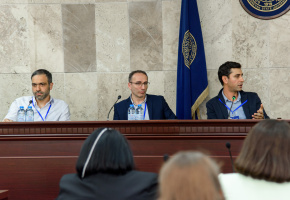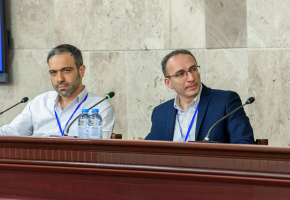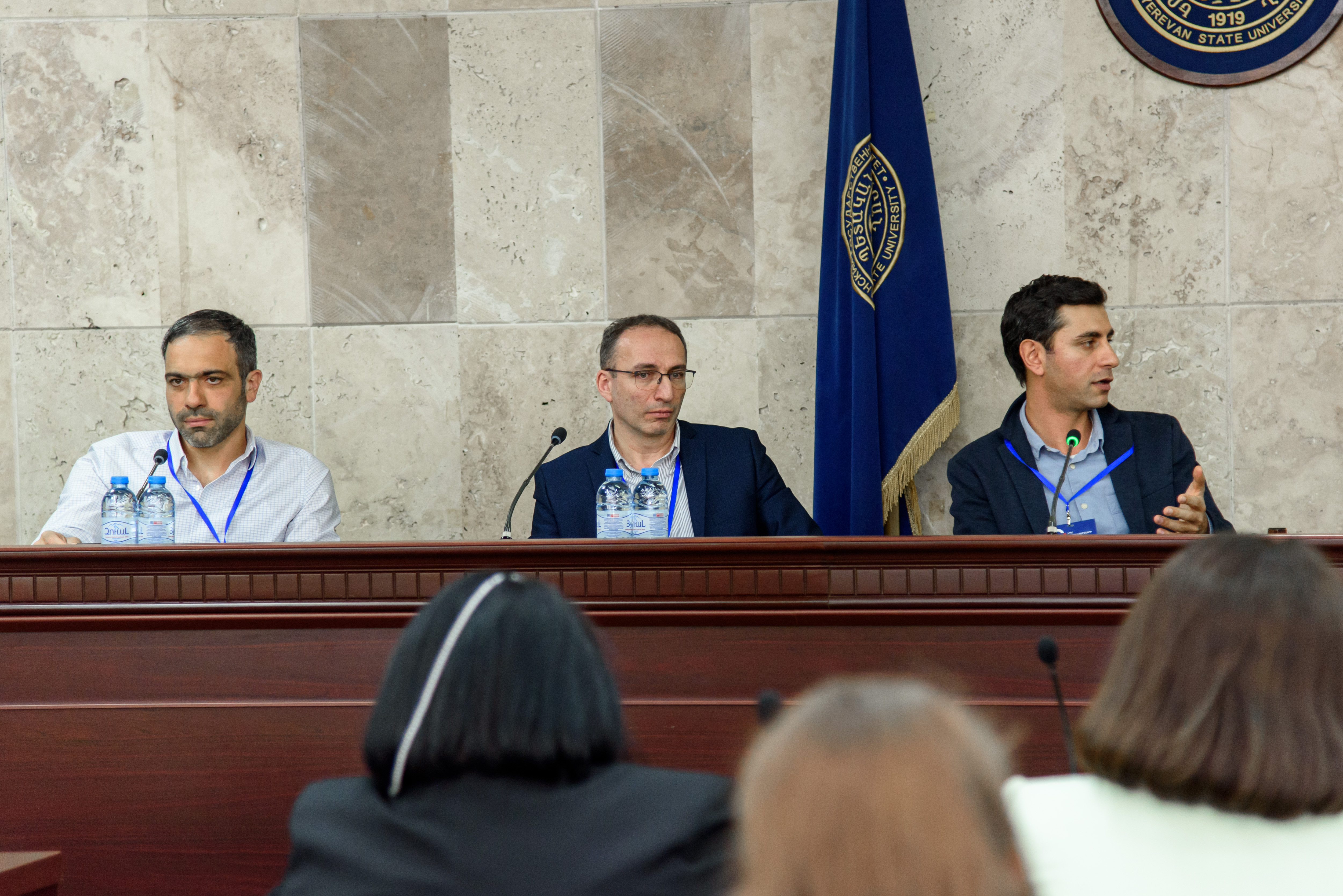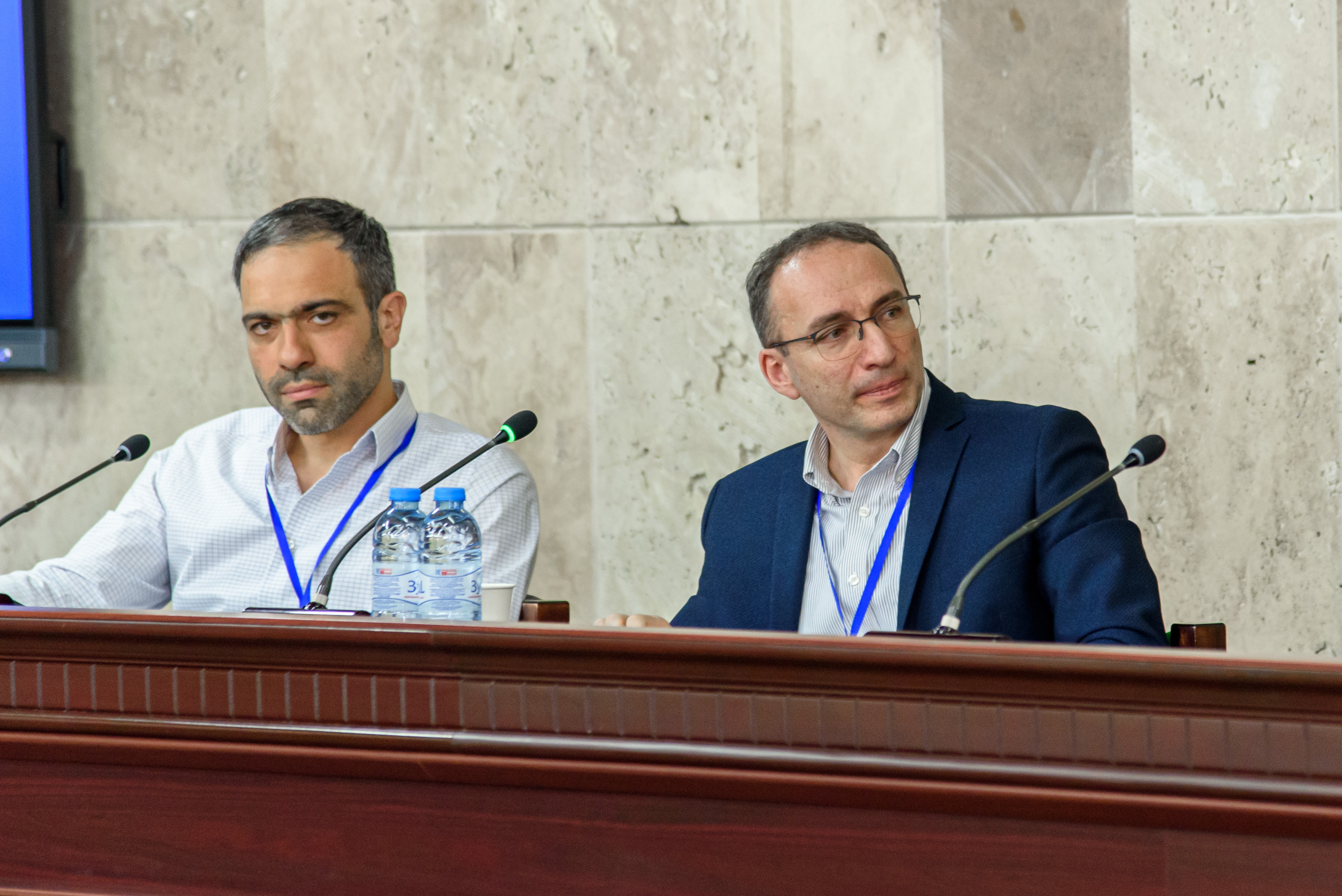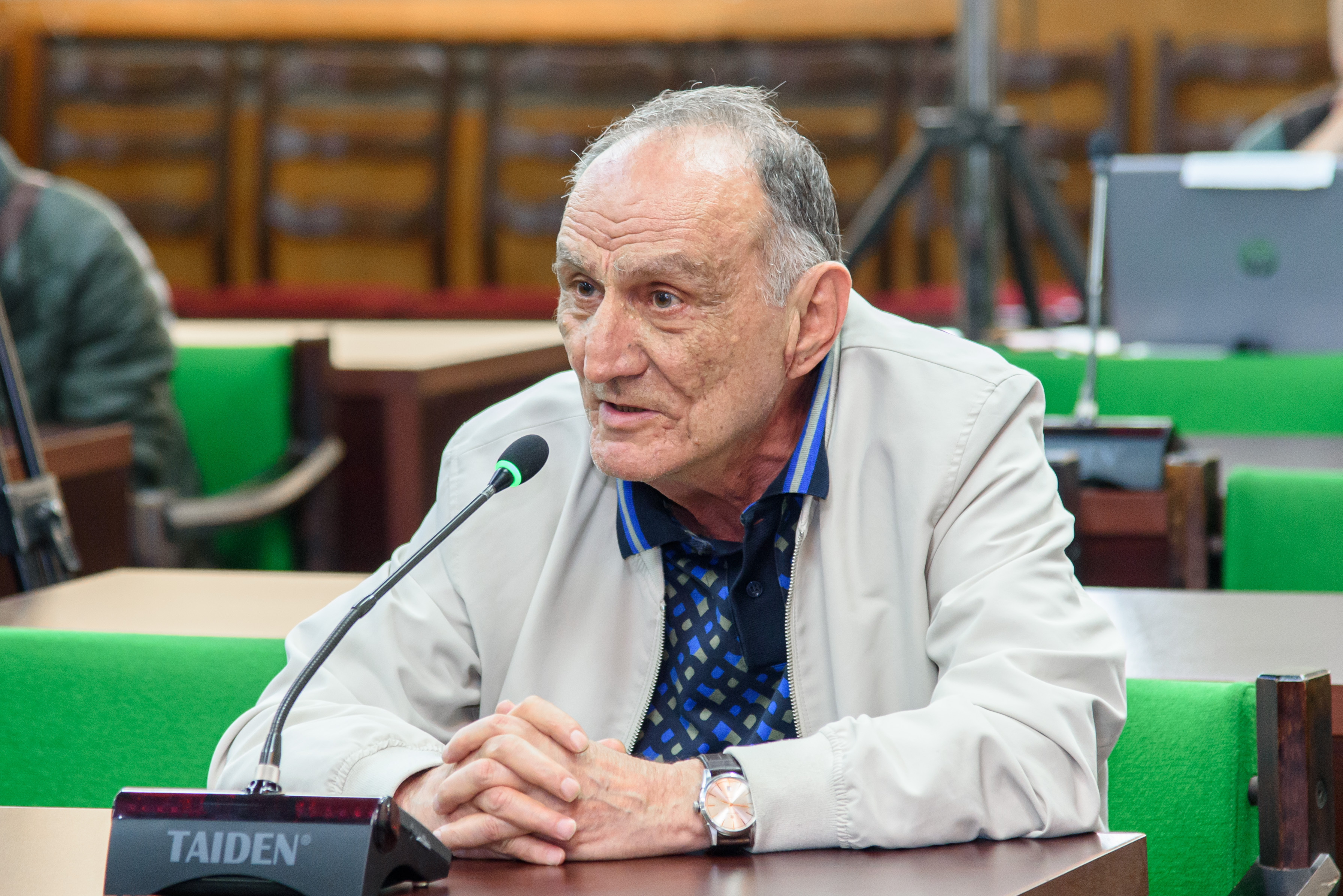September 03, 2025 | 12:49
Education
Lifelong learning
Graduates
University-business collaboration: New challenges in digital era
In today’s modern world, universities and businesses are facing new challenges in their collaboration efforts. The key driving force behind progress lies in the close connection between the educational system and industry, aimed at fostering innovative solutions and developing new skills. During the "Space and Technologies" section of YSU Alumni Forum, participants of the discussion titled “The Digital World through the Lenses of Education, Science, Governance, and Economy”, held in YSU Academic Council Session Hall, addressed a range of key issues related to the field.
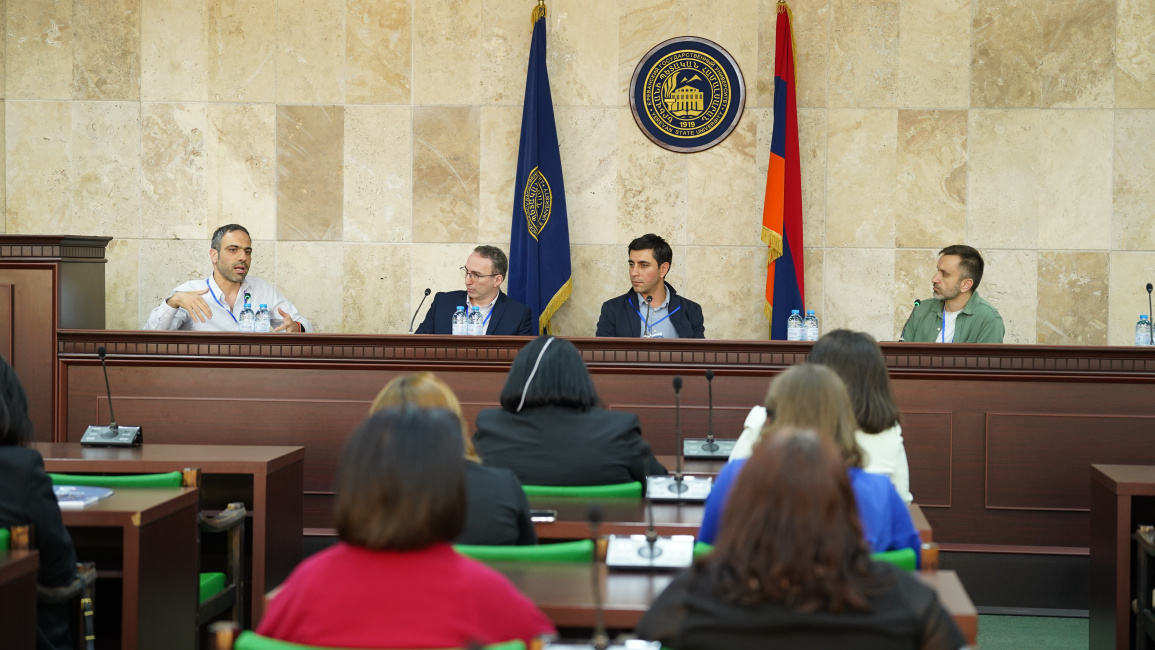
During the thematic panel discussion, leading industry experts shared their experiences and perspectives, including Narek Melkonyan, Head of the Data Science Department at PMI Science R&D Center; Tigran Sargsyan, Director of Artificial Intelligence at Synopsys Armenia; and Ashot Arzumanyan, co-founder and partner of SmartGate VC.
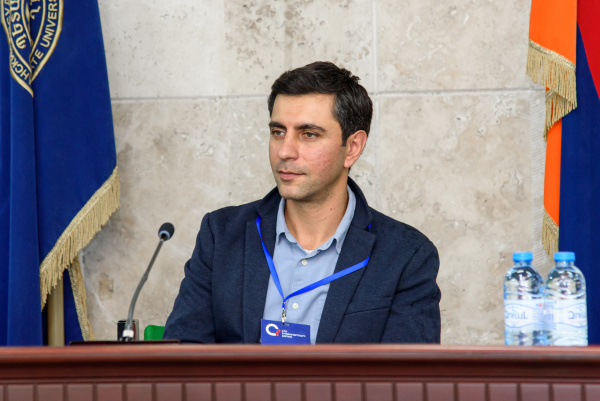
Narek Melkonyan noted that in recent years, PMI Science has collaborated with YSU through several initiatives—particularly in the establishment of a laboratory at the Faculty of Mathematics and Mechanics, as well as the development of master’s programs.
"Our company cooperates with universities and institutions from many countries. What we and our partners often observe is the following: universities in Armenia are not sufficiently proactive and do not take enough initiative to engage with businesses. They are not forward-leaning in fostering collaborations. Universities must be able to present concrete proposals and demonstrate how businesses can be involved by offering mutually beneficial, win-win solutions," emphasized Narek Melkonyan.
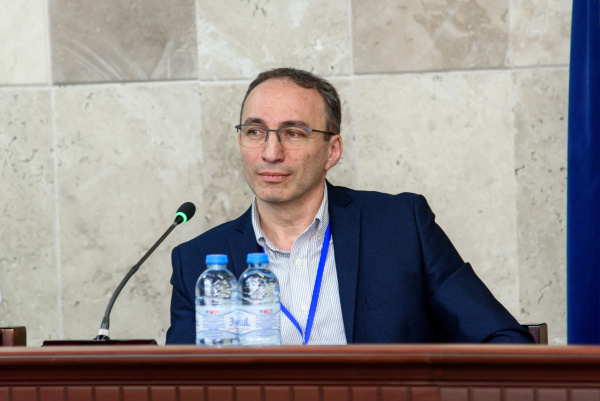
Tigran Sargsyan highlighted that Synopsys has been cooperating with YSU since 2005. Over the years, according to Sargsyan, they have recruited high-quality professionals from the university, who now form a significant part of their team.
"They are not always immediately involved in full-scale projects. Over time, through research activities, they progress. For us, it is a priority to have specialists capable of delivering high-quality work and solving complex problems. Therefore, the role of the university cannot be underestimated," said Tigran Sargsyan, adding that education is transforming, artificial intelligence is rapidly developing, and thus it is crucial to reassess how the education system should be organized and what content it should include.
Moderator of the discussion, David Baghdasaryan, co-founder and CEO of Krisp, emphasized that the company had established an AI at YSU several years ago for research purposes.
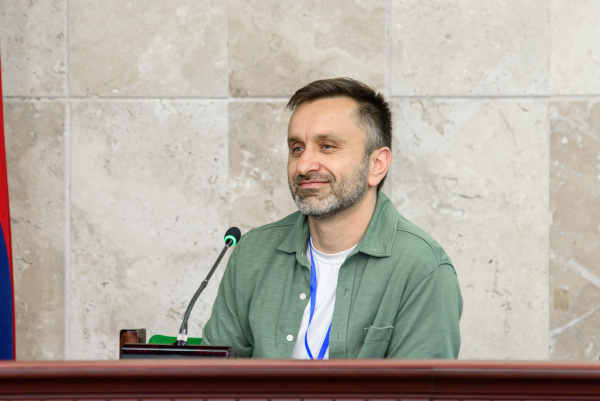
"We have attempted to cooperate with various research institutes multiple times, but the outcomes have not always been satisfactory. For example, the mindset and pace in industry are quite different—especially for smaller companies," he added, proposing that the discussion also explore the preparedness of university specialists: Do current students have sufficient foundational knowledge? And is YSU capable of cultivating professionals with a distinctive way of thinking?
In response to this question from the perspective of an employer, Narek Melkonyan noted that they hire approximately 20–30 new employees each year, most of whom are recent graduates. International (especially European) partners often assess the graduates' readiness as lacking, largely due to the insufficient emphasis placed on developing soft skills in universities.
Tigran Sargsyan, AI Director at Synopsys Armenia, further added: "On average, YSU students have an advantage over students from other universities, and this is something we clearly see in practice. We look forward to welcoming strong young professionals."
In response to a question from the audience—what does the AI sector contribute to universities?—Tigran Sargsyan stated:
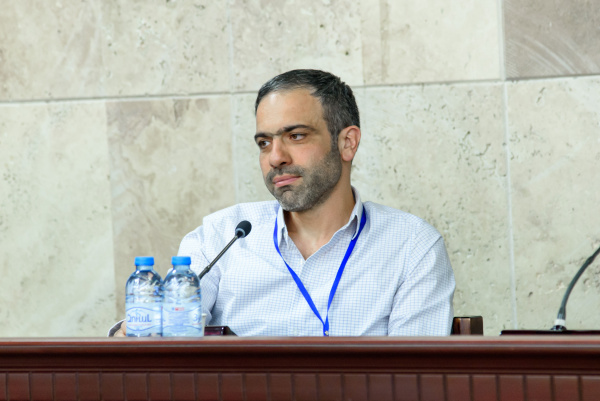
"Our mission is to develop and improve the country. In the first stage, institutions educate specialists. If strong professionals are graduating from your institution, that means you are doing your job very well. The next phase is production—industry—where young people come to work with us. We introduce complex technologies and cutting-edge projects, salaries rise, and we pay significant taxes. That is our mission."
Ashot Arzumanyan, in his remarks, suggested that the issue could be divided into two parts: the educational component and the industry's participation. He believes that the university should seek to engage with industry to the extent that it can fully execute its educational mission:
"In fact, the main KPI of a university should be whether its graduates are sufficiently prepared to work effectively in industry. Another critical element is research activity, which is also of great importance. For example, we invest in foreign companies that are on the path to commercialization. Two key aspects stand out here: government-funded research in science and industry’s engagement in solving specific problems. There's a lot of work to be done in these areas. Establishing reliable partnerships with industry is crucial, as real outcomes can only be achieved through such cooperation," he said.
Narek Melkonyan added that, from a business standpoint, there is no difference in which university the investments are made. Businesses will always seek out and choose the most efficient and profitable option. However, universities must be able to generate innovative ideas, formats, and models to convince businesses and attract them to collaborate with their institutions.
The speakers also addressed the integration of artificial intelligence tools into the educational process, discussing whether this is a positive or negative development, its potential impact on universities, and the steps YSU should take to prepare for these changes.
For more details of the engaging discussion, see the video below⤵️
Video
